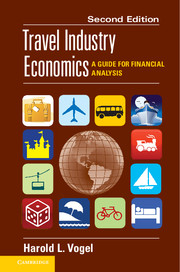Preface
Summary
Preface
We are, it seems, all born with a natural curiosity – with an urge to travel. What normal infant, confined to crib or playpen, doesn't soon want to explore the world beyond? What normal teenager doesn't want to explore a new neighborhood or city or country? And what person hasn't ever dreamt of how it would feel to travel across the boundaries of space or time?
The urge to travel is universal. And this makes travel, as broadly defined, a big business indeed. In the United States, for example, travel and tourism is estimated to account for approximately 5% of gross domestic product and to be the third largest retail industry after automobile dealers and food stores. Clearly, in getting from here to there and back again, we need lots of goods and services. In fact, including everything, the travel industry turns out to be the world's largest in terms of numbers of people employed and in terms of total direct and indirect revenues generated. Three hundred million people – one of every ten employees worldwide – and more than US$2.0 trillion out of a total world economic output of around US$60 trillion are probably good estimates for those numbers in the second decade of the twenty-first century.
- Type
- Chapter
- Information
- Travel Industry EconomicsA Guide for Financial Analysis, pp. xiii - xviPublisher: Cambridge University PressPrint publication year: 2012



